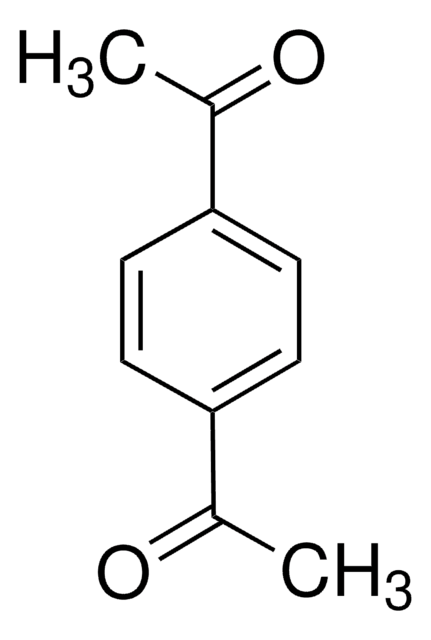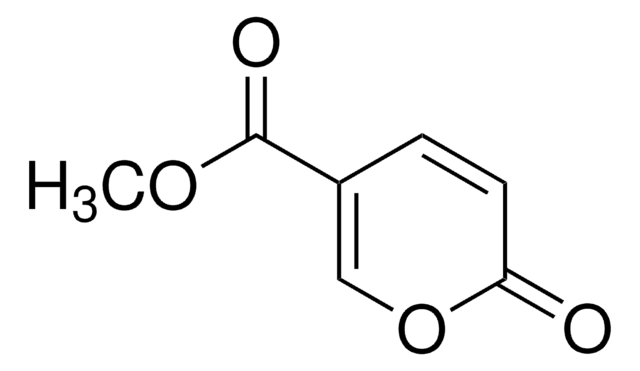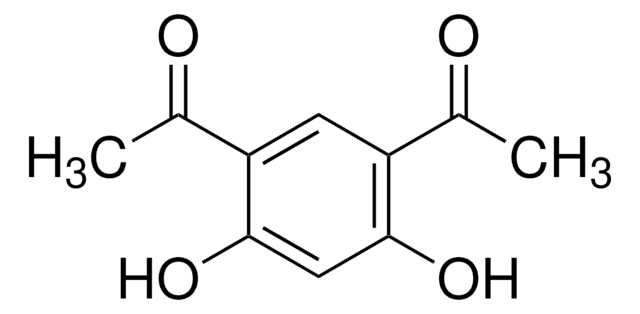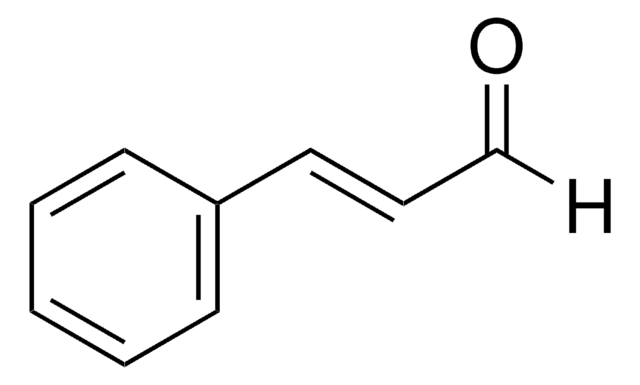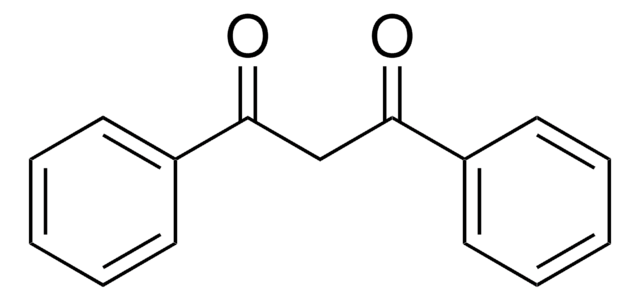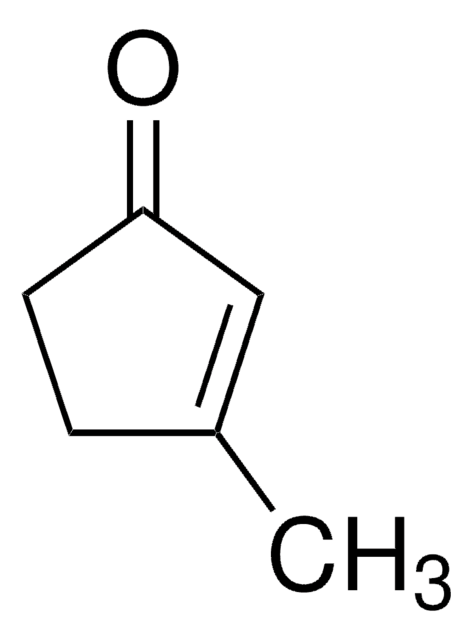158984
1,3-ジアセチルベンゼン
97%
別名:
1,1′-(1,3-Phenylene)bis[ethanone], 1,3-Bis(1-oxoethyl)benzene, 1-(3-Acetylphenyl)ethanone, 2,6-Diacetylbenzene, 3-Acetylacetophenone, m-Acetylacetophenone, m-Diacetylbenzene
ログイン組織・契約価格を表示する
すべての画像(1)
About This Item
化学式:
C6H4(COCH3)2
CAS番号:
分子量:
162.19
Beilstein:
2042511
EC Number:
MDL番号:
UNSPSCコード:
12352100
PubChem Substance ID:
NACRES:
NA.22
おすすめの製品
詳細
1,3-Diacetylbenzene is an δ-diketone. It induces neuropathological changes in the rodent central and peripheral nervous systems.
アプリケーション
1,3-Diacetylbenzene was used in the preparation of polyhydroxylated analogs.
保管分類コード
11 - Combustible Solids
WGK
WGK 3
引火点(°F)
235.4 °F - closed cup
引火点(℃)
113 °C - closed cup
個人用保護具 (PPE)
Eyeshields, Gloves, type N95 (US)
適用法令
試験研究用途を考慮した関連法令を主に挙げております。化学物質以外については、一部の情報のみ提供しています。 製品を安全かつ合法的に使用することは、使用者の義務です。最新情報により修正される場合があります。WEBの反映には時間を要することがあるため、適宜SDSをご参照ください。
Jan Code
158984-VAR:
158984-1G:
158984-BULK:
158984-10G:
この製品を見ている人はこちらもチェック
Min-Sun Kim et al.
Toxicology and applied pharmacology, 183(1), 55-65 (2002-09-10)
The gamma-diketone analogs 1,2-diacetylbenzene (1,2-DAB) and 2,5-hexanedione (2,5-HD), but not the delta-diketone 1,3-diacetylbenzene (1,3-DAB) or the beta-diketone 2,4-hexanedione, induce neuropathological changes in the rodent central and peripheral nervous systems. The molecular targets of these neurotoxic aromatic and aliphatic gamma-diketones, and
M Artico et al.
Journal of medicinal chemistry, 41(21), 3948-3960 (1998-10-10)
Various cinnammoyl-based structures were synthesized and tested in enzyme assays as inhibitors of the HIV-1 integrase (IN). The majority of compounds were designed as geometrically or conformationally constrained analogues of caffeic acid phenethyl ester (CAPE) and were characterized by a
Tim Goelen et al.
Pest management science, 77(2), 930-938 (2020-09-26)
Recent studies have shown that microorganisms emit volatile compounds that affect insect behaviour. However, it remains largely unclear whether microbes can be exploited as a source of attractants to improve biological control of insect pests. In this study, we used
ライフサイエンス、有機合成、材料科学、クロマトグラフィー、分析など、あらゆる分野の研究に経験のあるメンバーがおります。.
製品に関するお問い合わせはこちら(テクニカルサービス)